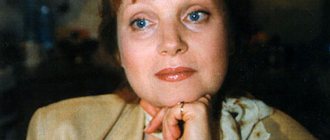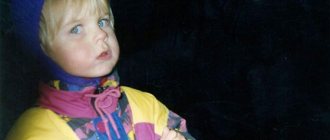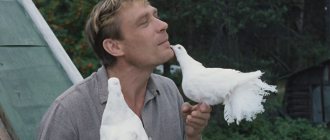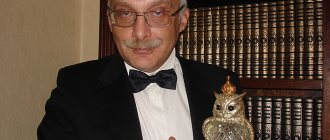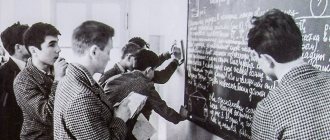Biography
Alexander Sokurov is a public figure, director, screenwriter, actor, and master of Russian cinema. The name of this figure is included in the list of the best directors of world cinema (by decision of the European Film Academy). Alexander Nikolaevich was born on June 14, 1951 in the small village of Podorvikha, in the Irkutsk region. But now this fertile area, where the land was rich in potatoes and vegetables, cannot be found on the map of Russia, because in 1956 the village and the station were flooded when the Irkutsk reservoir was filled.
Director Alexander Sokurov
Sokurov grew up and was brought up in the family of a front-line soldier. The director’s father is a participant in the Great Patriotic War, who distinguished himself on the battlefield with his exploits. Due to the specific profession of Alexander Nikolaevich’s father, the Sokurov family often moved from place to place, so the future filmmaker began to study literacy in the Polish People’s Republic, and received a certificate of secondary education in sunny Turkmenistan.
Alexander Sokurov
After graduating from school, the young man continued his education; in 1968, his choice fell on Gorky State University, located in Nizhny Novgorod. As a student, Sokurov studied at the Faculty of History, and in 1974 the young man received a diploma. Perhaps Alexander Nikolaevich would have become a great teacher, telling students about the policies of Ivan the Terrible, about the black spot in the biography of Nicholas II, about Stalin’s strategy and much more, but Sokurov’s fate made its own adjustments.
Alexander Sokurov in his youth
Alexander decided to connect his life with cinema, so in 1975 he entered VGIK, a prestigious university located in Moscow. There, the young man began attending a creative workshop for directing popular science films under the guidance of Zguridi Alexander Mikhailovich, where he met his friend Yuri Abramov.
Alexander Sokurov
Sokurov was a capable student, so he pleased his parents with “A’s” in his grade book, for which he was awarded the prestigious Sergei Eisenstein scholarship. Undeniable talent and erudition helped Alexander Nikolaevich pass exams as an external student and graduate from VGIK a year ahead of schedule. But the future director had to take such a step not of his own free will, but because of a growing conflict based on formalism. The film genius was also accused of anti-Soviet sentiments.
Movies
Initially, Alexander Nikolaevich practiced directing: as a student, he shot a short video. Sokurov’s debut feature film work was a film called “The Lonely Voice of a Man” (1987, script by Yuri Arabov). The plot of the film revolves around the Red Army soldier Nikita Firsov, who, after the civil war, returns to his homeland and falls in love with a young girl, Lyuba.
Director Alexander Sokurov
This picture might not reach the audience. The fact is that due to infighting between Sokurov and the leaders of VGIK, the creations of the talented director were categorically rejected, so the film “The Lonely Voice of a Man” was not accepted as a diploma work and was subject to destruction. But Alexander Nikolaevich, together with his friend Abramov, took it by cunning: by hacking into the institute’s archive, the comrades stole the source materials, putting other film works in their place.
Still from Alexander Sokurov’s film “The Lonely Voice of a Man”
It is noteworthy that the film, which they wanted to liquidate, became a nominee and winner at several film festivals. It is worth noting that Alexander Sokurov’s first full-length work received a positive review from the guru of Russian cinema Andrei Tarkovsky, who later supported his novice colleague.
“Sokurov has strange things, inexplicable, even stupid, seemingly incomprehensible, incoherent... But... a genius! The hand of a genius…”, the creator of the parable film “Stalker” used to say.
Next, the young man wanted to connect his life with Mosfilm, but he was not satisfied with the working conditions. Therefore, Sokurov’s choice fell on Lenfilm (on the recommendation of Tarkovsky, he was enrolled in 1980). In 1981, Alexander Nikolaevich became the director of the tragic requiem “Dmitry Shostakovich. Viola Sonata,” which tells about a brilliant composer and the tragic fate of a lonely, rejected artist.
In 1985, Sokurov released a film with the non-trivial title “Patience. Labor”, and in 1986 viewers saw the film “Mournful Insensibility” with Alla Osipenko, Irina Sokolova and Vladimir Zamansky in the leading roles. Two years later, Alexander Nikolaevich becomes the author of the short film “Evening Sacrifice,” the plot of which reflects the entire essence of Russian life.
Still from Alexander Sokurov’s film “Mournful Insensibility”
In the USSR, the May Day demonstration of workers (when large crowds of people gathered with slogans, portraits of Lenin and other statesmen) was an integral part of the Soviet tradition. But Sokurov’s celebration of the last month of spring is shown as a sad event: a tired gathering of procession participants scatters at a click, without the director’s orders. Thus, a dissonance arises in the viewers’ minds between the official genre and Sokurov’s creation.
Alexander Sokurov on the set
It is not surprising that Alexander Nikolaevich’s works were subject to criticism, since his work was radically different from the preferences of Goskino and government agencies: until the end of the 1980s, not a single work of the master was allowed into the auditorium.
For this reason, Tarkovsky organized a trip abroad for his friend, but Sokurov refused the Hollywood expanses, since, despite oppression by the authorities, Alexander Nikolaevich remained a patriot who honors the Russian language, his nationality and adores the spiritual treasure of the Hermitage. At the end of the 1980s, the situation changed: films that did not receive distribution were shown to a wide audience and represented Russia at various festivals.
Still from Alexander Sokurov’s film “Russian Ark”
In 1994, Alexander Nikolaevich submitted to the public the existential drama “Silent Pages,” starring Alexander Cherednik and Sergei Barkovsky. This summer is a unique interpretation of the works of Russian prose writers of the 19th century. The plot is based on Dostoevsky's drama Crime and Punishment. The director tried to replicate the atmosphere that permeates Fyodor Mikhailovich’s book.
Alexander Sokurov with the Golden Lion award
The new century begins for the talented master with a documentary about the life and work of the Japanese writer Toshio Shimao. It is worth saying that this picture was filmed by order of the television channel of the land of the rising sun. In the same 2000, the drama “Taurus” was released, telling the story of a historical figure and famous politician who, against the background of illness, becomes a mere mortal man. Despite his social status and enviable position under the rays of the red star, the Soviet leader becomes forgotten and abandoned by people.
Still from Alexander Sokurov’s film “Faust”
In 2009, Alexander Nikolaevich delighted fans of his work with the documentary film “Reading the Siege Book,” in which Oleg Basilashvili, Olga Antonova and Ivan Krasko took part. Next, Sokurov, inspired by Goethe's work, shoots the fantasy drama "Faust", where the main character is the one whose part of the power always wants evil and always does good. This painting, based on the manuscript of the great German writer, was awarded the prestigious Nika Prize in 2013.
First creative steps
While still a student, director Sokurov met screenwriter Yuri Arabov, who became his like-minded person in his work and lifelong companion. Another person in Sokurov’s life who appreciated his first directorial work and subsequent works was director Tarkovsky.
Alexander Nikolaevich made his first feature films at the Lenfilm film studio, where he ended up in 1980 on the recommendation of Andrei Tarkovsky. At the same time, the director worked on documentary films - he collaborated with the Leningrad Documentary Film Studio. In general, Sokurov really liked Mosfilm, and under other circumstances he would very much like to work there. However, the director was not at all happy with the working conditions of the Moscow film studio.
It must be said that Sokurov’s debut films displeased the authorities, and they were destined to lie on the shelf for a long period of time - the films were not released. Sokurov realized that he was disliked by the political elite, realized that he was in danger of physical harm, but did not leave the country, although there were opportunities. “I always remembered that I am Russian,” says Alexander Sokurov. Nationality is belonging to a certain nation, nationality, it is the language, ritual and faith of the fathers. For the hero of our story, the Motherland is Russia.
Personal life
The life of Alexander Sokurov is like a book with seven seals. Rumor has it that in 2020 the director remains an enviable bachelor, because for him a career in the film field comes first than his wife and children. However, we should not exclude the fact that the creator of the film “Russian Ark” may have acquired a loved one, but hides his amorous relationship from journalists hungry for sensations.
Alexander Sokurov is not married
It is known that the forbidden fruit is sweet. Therefore, Sokurov’s personal space is a tasty morsel for the media; many news stories are full of headlines that Sokurov allegedly secretly meets with the wives of other directors and wealthy financiers. But there is no reliable confirmation of these yellow press rumors.
Alexander Nikolaevich also has a pronounced public position; in numerous interviews he is ready to talk about his favorite business, as well as politics or Russian and foreign societies. Rumor has it that this director is one of the few people who is not afraid to express a critical opinion about the structure of the country to Vladimir Putin personally.
“I believe that the situation in Russia can be changed from above. And it would be good to start from the top, if the head of the state becomes a person with an absolutely humanitarian program, an absolutely humanitarian consciousness,” Sokurov told a Fontanka correspondent.
In addition, Alexander Nikolaevich spoke about the conflict with Ukraine: in his opinion, Ukrainians are a distinctive people who have the right to claim a separate state.
Alexander Sokurov now
Not so long ago, in 2020, Alexander Nikolaevich expanded his filmography with the film “Francophonie” (produced in France, Germany and the Netherlands), which subsequently won several awards.
Alexander Sokurov in 2020
In 2017, Sokurov continues to participate in interviews, where he shares with correspondents his opinion on directing and Dawesization.
Prizes and awards
Alexander Nikolaevich Sokurov is an unusual person. It's difficult to say what the secret of his success is. He knows and loves what he does. Sokurov works consistently, disciplinedly and clearly. In his own words, organizationally speaking, he is easy to work with. His policy is clear; it does not conceal any hidden trends or pitfalls. Creatively, of course, everything is different.
However, director Sokurov has so many awards, regalia and marks in his track record that at first it seems incredible. The master's works have been repeatedly nominated for prizes at international festivals: the Golden Bear prize at the Berlin Film Festival; Nika Award for the film “The Lonely Voice of a Man”; Prize of the Moscow Tarkovsky Film Festival; Russian Film Critics Award and a Special Jury Prize for the film “Mother and Son”. His trophies include a prize for visual design in the film “Russian Ark” at the Toronto Film Festival; a special prize in Sao Paulo for overall contribution to cinema; prize from the Argentine Association of Film Critics for the film “Russian Ark”; prize for “For artistic language that has influenced world cinema.”


